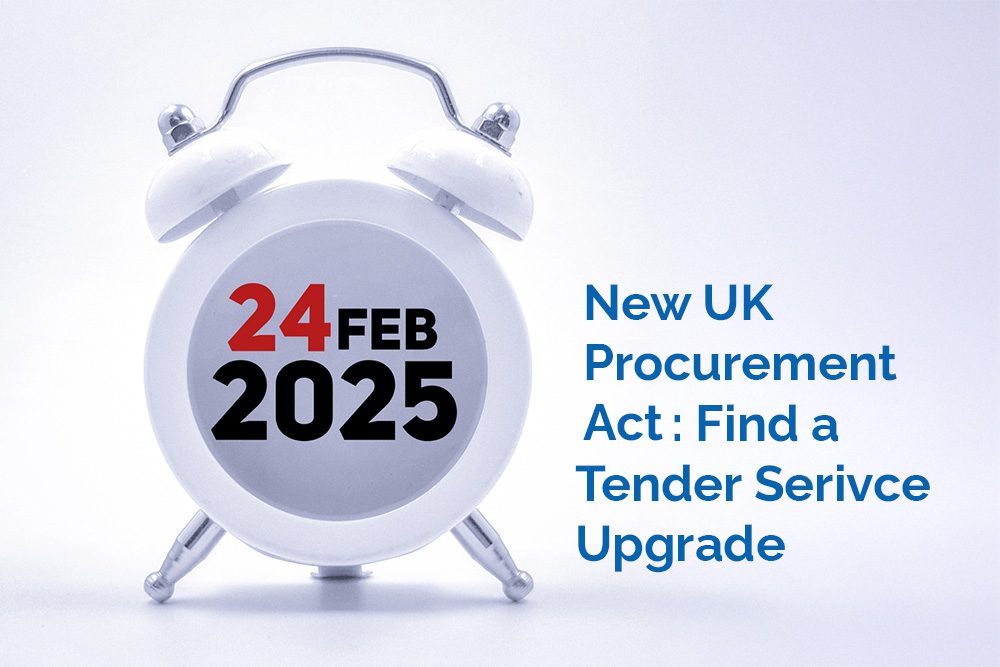Any Bid Manager or Bid Team targeting high value public sector and commercial tenders, requires skill and dedication to deal with the complexities of the work and pressures of a highly competitive environment.
Let’s face it coming second just doesn’t count!
1. Managing a Varied Workload
The specialised abilities and skills of a Bid Team and Bid Manager are critical to any organisation focused on winning tenders.
A bid team has to juggle numerous concurrent responsibilities, activities and people, all within tight deadlines. This requires high levels of dedication, collaboration and project management skills.
Without defined roles, goals and processes, teams can struggle to successfully manage a heavy workload of multiple tenders. Completion of tender submissions may be rushed, resulting in poor quality responses and lower win probabilities.
Technology can play a critical role in supporting Bid Managers and Teams, providing a consistent framework, streamlined processes and automated tasks. Thus improving efficiency and freeing up time to focus on the more critical elements of a challenging workload.
2. Lack of Strategic Importance & Focus
Businesses need to be heavily invested in the bidding process when strategically targeting tenders as part of their revenue goals.
However, it’s often the sales element of this journey that is at the forefront of this focus – namely finding and qualifying opportunities and building the pipeline.
The tender submission element, which is so critical to win success, may often be a lower business priority. Some organisations may operate without a dedicated bid team, relying on their Marketing or Sales Teams to complete tenders as a supplementary activity.
Limited strategic importance for Subject Matter Experts to prioritise contributions can also have a detrimental effect on response quality and win probabilities.
Businesses, with senior management strategically focused on bid management excellence backed up with investment in technology, can make a huge difference in overcoming bid management challenges.
3. Pressurised Time Constraints
The tender process is naturally one of time constraints, with multiple stages and deadlines to hit.
There is a great deal to achieve from assessing and understanding the procuring evaluation criteria and scoring structure to seeking information from Subject Matter Experts, compiling and evaluating the responses and securing approvals and sign off.
This can be made even more challenging as Bid Managers are often dealing with multiple bids and treading a fine line in managing resources and deadlines.
Adopting agile project management practices, supported by a comprehensive Bid Management software solution will help streamline and automate processes, enhance progress monitoring and improve issue resolution. This will allow Bid Managers to overcome bid management challenges and dedicate more time to developing better quality tender responses.
4. Coordination & Collaboration
There are a wide variety of people involved in any high value bid submission.
A Bid Manager, as well as managing their own team, will be responsible for ensuring effective liaison and collaboration with other stakeholders.
This will include the Sales Team, Managers and Subject Matter Experts from various business departments and disciplines, required to provide relevant decisions, information and supporting materials. Bids may also require collaboration with third party partners and suppliers, adding an additional complexity to the process.
Teams may be in different offices, locations and time zones, with the ‘working from home’ phenomenon making co-ordination and communication further challenging. Certainly Bid Teams will spend a significant amount of time nurturing these relationships to secure quality tender responses.
Supporting technology has become even more crucial in this new multi-dimensional world. A dedicated solution can certainly go a long way in supporting Bid Teams in overcoming these bid management challenges.

5. Understanding Tender Criteria
The overriding responsibility of a Bid Manager is to deliver competitive, compelling tender submissions to obtain the highest evaluation scores against competitors, and thus winning the contract.
Therefore, a critical element is the rigorous evaluation and full understanding of the Executive Summary, Evaluation Criteria, Scoring Matrix and Questions provide by the procuring origination. This will help steer the direction and level of detail required for individual responses as well as highlight any areas of concern or risk.
Unfortunately, due to time constraints this element may be rushed and not fully understood. This can culminate in generic responses being compiled that don’t fully answer key points within the questions. This can result in low scoring and reduced win probabilities.
Adopting Bid Management software that manages critical evaluation processes will help ensure detailed analysis is undertaken. This will give stakeholders access to greater understanding and insight to develop improved responses.
6. Manual Repetitive Activities
Any Bid Manager or team managing multiple tenders needs to perform numerous repetitive administrative tasks.
These will include sending information requests and reminders to Subject Matter Experts, searching and collating information, compiling question responses and securing approvals.
Often much of this work will involve manual processes often undertaken through email and word processing applications. This can be time consuming and frustrating. And may lead to inefficient project management, risks of missed deadlines and poorly conceived tender submissions.
85% of business leaders believe that automating some of the workload will give them and their employees more time to focus on the goals that truly matter to the company.
This is perhaps the most obvious of the 10 challenges that can very quickly and easily negated through the adoption of technology. An end-to-end bid management solution, when successfully implemented, can radically streamline and automate previous manual tasks. This allows time to develop more creative and compelling tender responses.
7. Information Management
With some 100 tender questions requiring detailed responses, there is a plethora of information to evaluate, collate and deliver.
This is a huge task for any Bid Manager, with information dispersed throughout the organisation, often sitting with individuals and located on local hard drives or stand-alone department applications. Information may be out-of-date, inaccurate or incomplete.
Adopting robust content management practices together with a secure, central directory to store all tender documentation will help overcome these hurdles. Quicker access, search and updating will have a significant impact, making life easier for the Bid Team across the whole process and help improve response quality.
8. Developing Quality Responses
Bid Managers are reliant on their Subject Matter Experts to provide the necessary accurate information and documentation to answer tender questions.
This may be standard business information such as Company Registration, Insurances, product specifications, etc. as well as more complex information such as pricing matrices, Environmental & Social Responsibility and Employee Engagement and Support.
Unfortunately, Subject Matter Experts will be dealing with their own responsibilities and work pressures, so may not have the scope to deliver quality, up-to-date information within the deadlines required. This can result in the ‘cut and paste’ of historic responses being used to meet deadlines, with little time to finesse and develop better quality responses.
A Bid Management solution will help the Bid Team automate and rapidly deploy information requests and reminders, providing Subject Matter Experts with clarity on response requirements and deadlines.
9. Securing Approvals and Sign Offs
Public tender contracts can be worth millions in revenue to the winning bidder, reflected in the complexity of Tender questions and the extent of Intellectual Property contained in the responses.
Providing inaccurate responses can open the business to financial and brand reputation risks. But securing the appropriate approvals at every stage of the process and within set deadlines can be a major hurdle for any Bid Manager. Especially where there is no formal approval process or easy accessibility to information for proper review and understanding by sign-off managers.
Governance and approvals processes can be more easily managed and consistently implemented through Bid Management technology. Approvers can be assigned, deadlines given, reminders issued and approvals secured with assurance of easy transparent review and audit if necessary.
10. Learning & Improvement Constraints
The role of a Bid Manager is a very reactive one, especially when new tender opportunities hit the desk and require urgent attention.
Unfortunately, this results in performance reviews being side-lined, with greater insights of both company and competitor performance being missed. This reduces opportunities to identify areas of quality improvement and competitive advantage.
A good Bid Management solution enables Bid Managers to easily source historic questions and evaluation scores. These can be analysed, feedback given, and results shared across the team to stimulate discussion and development of tender response quality and scores.

Bid Management Challenges Made Easy
There is no doubt the role of a Bid Manager is a challenging one, given the complexity of activities and tight deadlines.
Much of the work has traditionally and still to this day requires manual interaction with information, people and processes.
Thankfully, the interest for digital transformation within the Bid industry is gaining momentum. Certainly, this is being reflected in the growing demand in TenderEyes Enterprise Bid Management software. Businesses are taking a more strategic approach and recognising the advantages of assisting their Bid Managers juggle their responsibilities and activities more efficiently and effectively.








